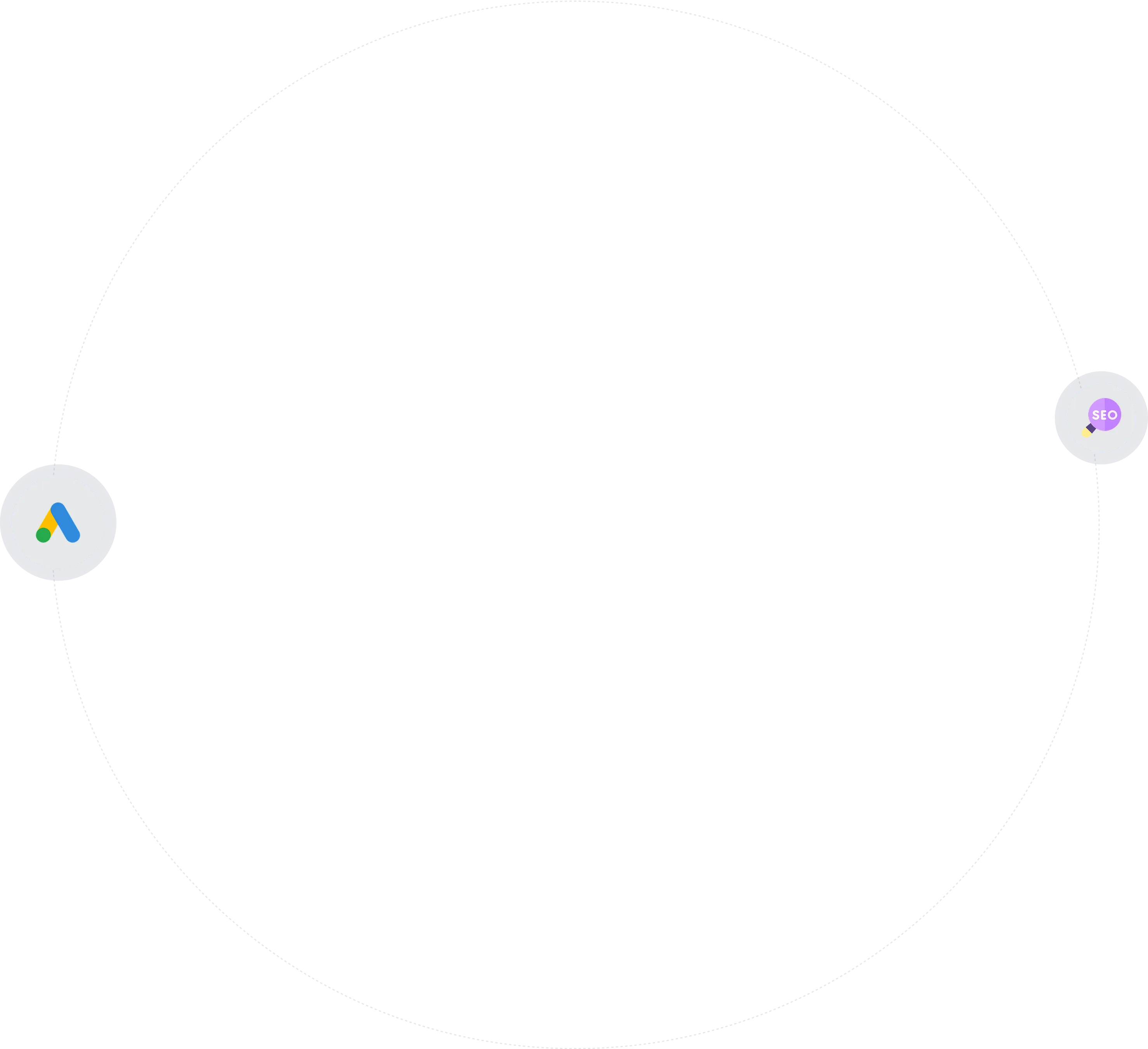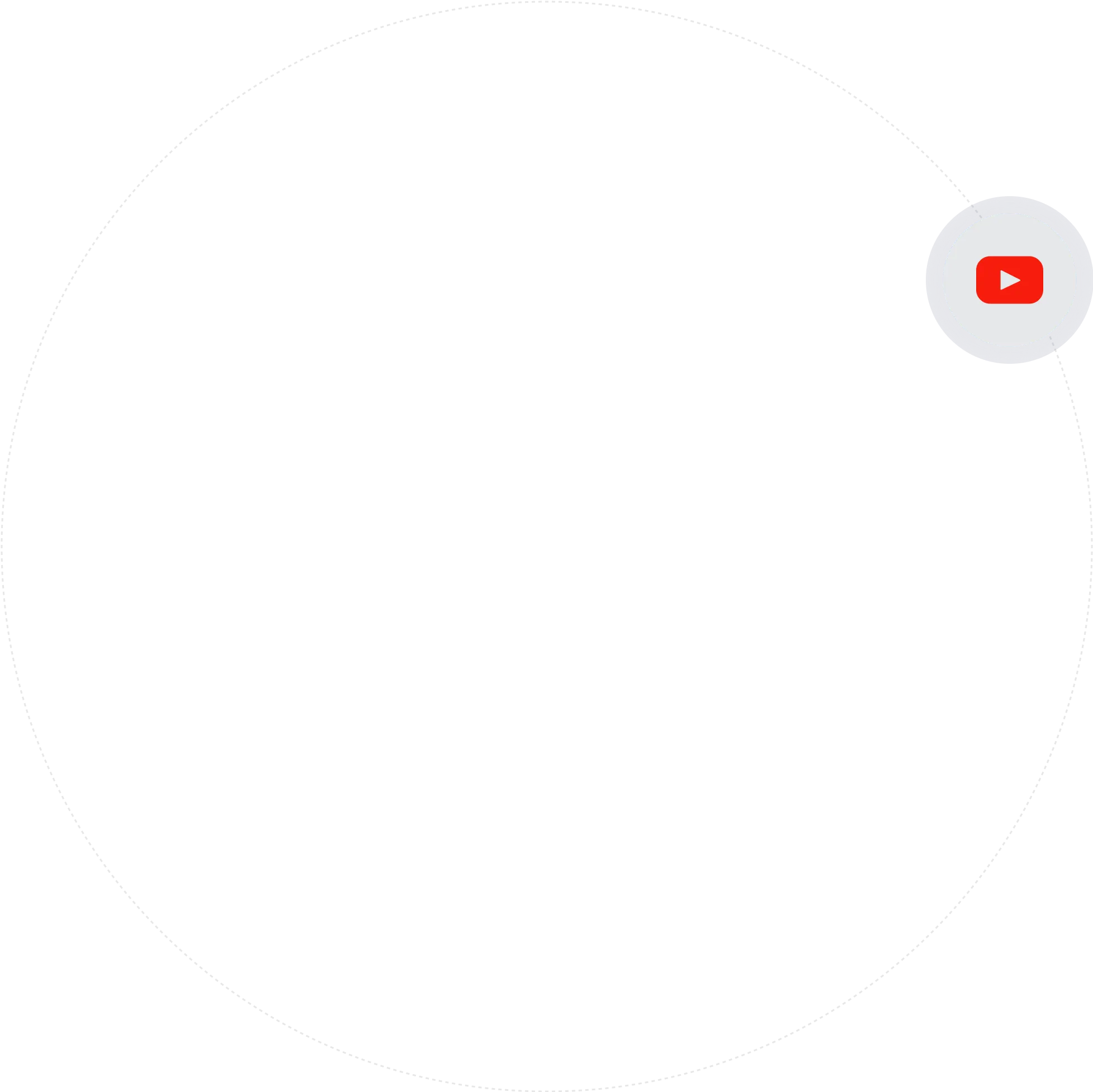
How long does SEO take: Realistic timelines for your measures


.webp)

The most important facts in a nutshell






.webp)

Then now is the right time! Together we will turn your website into your strongest sales channel - with a clear strategy and measurable growth.
Get free adviceThe question “How long does SEO take?” is probably one of the most common that agencies get hired. And it is absolutely justified, because as a customer, you want clarity, especially when you may have even been specifically promised a top ranking. You want to know if and when your investment in search engine optimization is paying off. After all, it's not just about a better Google ranking, it's about real results: more visitors, more leads, more sales. But as simple as the question sounds, the answer is anything but general. SEO is not a quick fix. It is a strategic process that works on many levels. So if you want quick visibility in Google results, you should use Google Ads instead. But if you want to be in first place in the long term, you can't avoid SEO.
In this guide, we'll show you in concrete terms how long SEO typically takes, what influences the SEO duration and how you can even actively speed up the process. We provide you with in-depth answers and real practical examples so that you can realistically plan and implement your SEO strategy, with us or independently.
What does SEO actually mean and what measures does it include?
Before we talk about the duration, we should first clarify what we're actually talking about. SEO stands for “search engine optimization”, i.e. in German: search engine optimization, sometimes we also speak of SEO optimizations. The goal is to optimize your website so that it appears at the top of Google search results for relevant search queries, preferably in 1st place, but anyone who thinks SEO is just the insertion of keywords is hugely mistaken. It is a comprehensive package of measures that is roughly divided into three areas:
Technical SEO
Here, we ensure that your website is technically capable of ranking well at all. These include:
- Loading time optimization: Google loves fast pages.
- Mobile optimization: Your site must work perfectly on a smartphone.
- Crawlability: We check whether Google can read and index your pages correctly, using the robots.txt, canonical tags, the sitemap, or indexing rules in the Google Search Console.
- Clean URL structures: So that both users and Google know what it's about.
OnPage optimization & content creation
Without high-quality content, there is no ranking. The following measures, among others, therefore come into play here:
- Keyword research: We analyze what your target audience is looking for, including long-tail keywords, search volume, competition level, and intent.
- Copywriting: Relevant content that offers real added value.
- Structuring: H1, H2, lists, tables and media, we build your content in an SEO-friendly way.
- Optimizing existing pages: We turn “okay” into “wow.”
Offpage SEO & backlink profile
Even the best site needs recommendations. Backlinks from other websites are like votes for your site. And especially if it's not a small niche, you can assume that even the best site needs recommendations to achieve even better ranking positions at a certain point. This sub-area therefore involves measures such as:
- link building (digital PR, guest contributions, industry directories)
- Backlink profile analysis: Quality over quantity.
- Removing harmful links
The key question: How long does SEO really take?
Now it's getting specific. Do you want to know how long SEO takes and when you'll see the first results? The honest answer: On average, you have to expect 6 to 12 months before you see significant SEO success. Why so long? Because Google doesn't immediately reevaluate your site after every optimization. It takes time for the algorithm to build trust. Especially with new websites, it often takes longer for you to appear in the top 10, depending on competition and search terms. But: We often see the first positive signals (e.g. better crawl rate, more impressions in the Google Search Console, initial ranking improvements) after just 4 to 8 weeks, provided that the SEO measures are intertwined and that there are no technical blockages.
Here is a realistic SEO timeline:
1—2 months: First technical optimizations, keyword set ready
3-4 months: First rankings, slightly increased visibility
5-6 months: First top 10 rankings for long-tail keywords
6—9 months: Stable rankings, noticeable traffic growth
9—12 months: First keywords in 1st place, significant ROI noticeable
Specific examples: How long does SEO take in practice?
It's one thing to talk about the duration of SEO in theory and quite another to look at specific examples from practice. After all, every industry, every website, every strategy is different. That is exactly what the question “How long does SEO take?” do so complex. You will therefore find typical scenarios below.
Example 1: Local service provider with a new website
A craft business from Hamburg with a completely new domain, zero visibility, no content and no backlink profile. We're starting from scratch. The first step: Technical SEO (indexing, loading time, structure), then local keyword research (“Elektriker Hamburg”) and targeted content creation on service pages and an advice blog. There are also local backlinks (industry directories, collaborations).
Estimated results: First inquiries after 4 months, top rankings after approx. 10 months. ROI achieved after 12 months.
Example 2: Content platform with high potential but weak structure
An information portal about sustainability, run by a dedicated team of editors, but without an SEO strategy. Although there are already many blog posts, there is a clear lack of keyword focus, internal linking and a well-thought-out page architecture. Although the content is of high quality, it is not correctly understood by search engines and is therefore barely played out. Possible measures: Creation of a new URL structure, keyword clusters per subject area, targeted optimization of the most important contributions including meta data, snippets and integration of structured data. In addition, content hubs (pillar pages) are being set up and targeted links are strengthened internally and externally.
Estimated results: After around 6 months, visibility rose noticeably, and the first top rankings for transactional and information-oriented search terms were achieved. After 10 months, organic traffic doubled, and the proportion of posts with rankings in the top 10 search results rose from 5% to 28%.
Example 3: Medium-sized online shop with an existing domain
A B2C shop in the Home & Living sector, domain active for 5 years, but without a clear SEO strategy. We start with a comprehensive SEO audit: poor crawlability, duplicate content, no structured content. Possible measures: technical corrections, optimization of category pages with transactional search terms (“buy a beech sofa table”), setting up an internal link, improving the UX.
Estimated results: Visibility increases from month 3, first top 10 rankings after 6 months. Increase in sales through organic traffic after 8 months
Example 4: Large portal in a competitive industry
A comparison portal in the insurance sector, tough competition, strong competition for top rankings. The site already has domain authority, but is weak in terms of content and search intent. Possible measures: We analyse competitors' ranking factors, revise the content, incorporate video content, and expand the backlink profile through PR campaigns.
Estimated results: Visible ranking boost after 6 months, ROI after approx. 14 months, many top 10 rankings for highly competitive keywords such as “car insurance comparison”.
Example 5: International website with multiple language versions
A SaaS company in the IT security sector with a multilingual website wants to grow in several markets at the same time, particularly in German-speaking countries, in the UK and France. The domain is already established, but so far the focus has been more on branding and less on SEO. There is also a lack of localization and clear keyword orientation for each market. Possible measures: We developed a multilingual SEO strategy with hreflang optimization, localized keyword research, technical corrections, and targeted content per market. We also carried out international link building, tailored to the respective target regions.
Estimated results: First SEO results can be measured in the DACH region after just 3 months, in particular via targeted landing pages and blog articles for search queries such as “firewall comparison companies”. In the UK and France, it takes around 7-9 months to achieve stable rankings, depending on the search engine and competitive situation. As a result, the company is a relevant player in the SEO sector of its industry, with continuously growing traffic and leads via organic search.
These examples show you: Depending on SEO factors such as domain age, competition, content depth, and link profile, it can take 3—15 months before you see results. It is rarely faster and usually only with an excellent starting position.
The best tips: How you can actively shorten SEO time
Even if sustainable SEO results take time, you can significantly speed up the process, provided that you use the right levers. Many measures are effective within just a few weeks if you work with structure, focus and technical understanding. We therefore share our best tips to help you improve your SEO processes optimize and make your successes visible more quickly:
1. Focus on quick technical successes (Quick Wins)
Not all SEO measures take months to take effect. There are numerous so-called quick wins that can be implemented quickly and have a direct impact on your visibility, especially in the technical sector. These include:
- Optimize load times: A slow website not only costs you rankings, but also visitors. Therefore, optimize loading speed by using image compression, using caching, lazy loading, and reducing unnecessary JavaScript or CSS files. In this case, tools such as PageSpeed Insights or GTmetrix help you identify weak points.
- Mobile-friendliness: Google rates your site based on the mobile version (Mobile First Index). Therefore, check them regularly with Google's Mobile-Friendly Test and ensure legible font sizes, sufficiently large buttons and intuitive navigation.
- Establish indexability: Bad robots.txt files, canonicals, or meta tags often block important pages from being indexed. We recommend tools such as Screaming Frog or Google Search Console to ensure that all relevant content is crawlable and indexable.
- Improve structure and internal linking: Use descriptive URLs (e.g. /dog food guide instead of /page123), a clear page structure, and consistent navigation elements. Good internal linking helps Google to understand content better and users to find their way around more easily.
Just by implementing these four points, you can often achieve measurable improvements in rankings and user behavior within 2-4 weeks.
2. Work with a clear keyword focus
A common mistake: keywords that are too broad, highly competitive. Anyone who immediately optimizes for “shoes”, “coaching” or “insurance” will hardly see results in the foreseeable future. Instead, use long-tail keywords, i.e. more specific search terms with lower competition but clear user intent. examples:
- instead of “coaching” → “burnout coaching for managers online”
- instead of “dog training” → “puppies can be house-trained in 7 days”
Such keywords ensure that you achieve relevant rankings faster, create more targeted content and increase your conversion rate because the search intent is better met.
3. Content is your capital
Good content is still one of the most important ranking factors. But it's not just any text that brings you forward, but structured, relevant, user-oriented content. What counts is:
- Depth instead of superficiality: Answer questions comprehensively.
- structure: Use subheadings (H2/H3), bullet points, tables, checklists.
- added value: Explain technical terms, give examples, show solutions.
- additions: Videos, infographics, FAQs — anything that enhances your text.
- optimization: Pay attention to keyword integration, meta data, internal linking, and load time.
An extra tip from our everyday SEO routine at this point: If appropriate, rely on content that is geared to a specific search intent (e.g. guide vs. product page). These often perform significantly better because they “pick up” the user before he jumps off.
4. Linkbuilding with a system
A high-quality backlink profile is a decisive boost for many websites, especially if you're in competitive markets. However, this is not about purchased links, but about strategic development:
- Digital PR: Publish studies, tools, or data that are picked up by media.
- Partnerships: Collaborate with specialist portals, industry blogs or thematically appropriate sites.
- directories: Use reputable industry directories with Trust, especially in local SEO.
- Internal linking: You can also share “Linkjuice” internally by linking specifically from strong pages to other relevant content.
Good link building also takes time, but it's worth it. First mentions in specialist portals or media often have a short-term effect and strengthen your brand image in the long term.
5. Work with professionals
If you don't have your own SEO department, don't work with Google updates, crawling, keyword clusters and competitive analyses on a daily basis, or simply don't have the time, working with an experienced SEO agency can also work. Why
- You save valuable time and avoid mistakes made by beginners.
- You benefit from proven strategies and a clear plan.
- You will receive transparent reporting, advice and continuous support.
An experienced SEO agency knows what is important. She knows the factors that determine success and failure. This saves you time, mistakes and especially nerves. We are happy to support you – no matter what stage you are currently at.
.jpg)
Why patience pays off with SEO
SEO isn't cheap and it takes time, resources, and a clear strategy. But it's worth it in the long run. Why It's very simple:
1. Sustainable traffic without advertising budget
While you pay for every click with ads, SEO brings you free traffic in the long run, and that permanently! So the better your site ranks, the more visitors you'll reach without additional spending.
2. Strong return on investment (ROI)
In many cases, the SEO ROI significantly exceeds investments after 12 months. In addition, the effect persists even if you cut the budget. That is not possible with SEA.
3. Independence and Trust
Users trust organic hits more than ads. A strong online presence in top positions therefore strengthens your brand, authority and trust, especially in competitive industries.
4. Long-term competitive advantage
Those who invest early have an advantage. Rankings cannot be copied from one day to the next. So you're building up an advantage that others can't easily get. SEO requires patience, yes. But anyone who sticks with it will be rewarded. Your rankings rise, your visibility grows and you build up a digital asset that brings you long-lasting customers.
Conclusion: SEO takes time, but it's worth it
You've made it this far and have already taken a huge step towards SEO success. What you know now:
- SEO is not a miracle cure, but a process with many adjustments.
- How long SEO takes depends on technology, content, competition, and strategy.
- Those who stick with it are rewarded with top rankings, more visibility and strong ROI.
Anyone who is prepared to work sustainably is rewarded with visibility, trust and constant traffic. Depending on the initial situation, competition and measure, initial improvements can be seen after just a few weeks, for example through faster loading times, better indexing or initial rankings for long-tail keywords. Stable top rankings for highly competitive search terms, on the other hand, usually take 6 to 12 months, in some cases even longer.
In addition, it is not enough to create content once or fix a few technical errors. Instead, you need a well-thought-out strategy that is regularly reviewed, expanded, and adjusted, because Google is constantly changing, as are user expectations. Anyone who takes SEO seriously therefore permanently integrates it into their marketing and does not think in terms of weeks, but in chains of effects: Technical foundation, relevant content, clear structure, good internal linking, meaningful link building and continuous development.
SEO therefore requires patience, but the investment pays off. You build up a sustainable, independent channel that brings more visibility, more qualified visitors and ultimately more revenue in the long term without being dependent on advertising budgets in the long term. Anyone who starts today is therefore often ahead of the pack in just a few months. And anyone who sticks with it plays permanently in the upper echelons.
You don't want to lose months, but want to set up the process correctly from the start?
As an SEO agency, we help you quickly identify your potential, plan targeted measures and combine realistic timelines with measurable success. Just ask us without obligation and maybe we'll work together on your SEO success soon!
.jpg)
FAQ: The most common questions about SEO & how long does it take
Below you'll find answers to the most common questions about how long does SEO take:
How quickly can I get to number 1 with SEO?
That depends on many factors, in particular on the competition and your starting position. In small niches, it can take 3—6 months, in highly competitive industries, 9—12 months or more.
Why does SEO take longer for some pages than others?
Because every website is different. Technology, content, backlinks, or market, all influence how long it takes for Google to trust your site.
How do I know whether my SEO measures are taking effect?
Increasing visibility, impressions and clicks in Google Search Console? Are rankings improving? Then you're on the right track.
Can I speed up SEO if I invest more budget?
In some cases yes, for example through faster implementation, more content production or more intensive link building. But even with a larger budget, SEO takes time.
Is SEO worthwhile even with high competition?
Definitely Especially then, SEO is a strong channel, especially if you approach it professionally and consistently. This is exactly where long-term competitive advantages can be built up.
Die zentrale Frage: Wie lange dauert SEO wirklich?
Jetzt wird’s konkret. Du willst wissen, wie lange SEO dauert und wann Du erste Ergebnisse siehst? Die ehrliche Antwort: Im Durchschnitt musst Du mit 6 bis 12 Monaten rechnen, bis Du signifikante SEO-Erfolge siehst. Warum so lange? Weil Google Deine Seite nicht sofort nach jeder Optimierung neu bewertet. Der Algorithmus braucht Zeit, Vertrauen aufzubauen. Besonders bei neuen Websites dauert es deshalb oft auch länger, bis Du in den Top 10 auftauchst, je nach Konkurrenz und Suchbegriffen. Aber: Die ersten positiven Signale (z. B. bessere Crawling-Frequenz, mehr Impressionen in der Google Search Console, erste Ranking-Verbesserungen) sehen wir oft schon nach 4 bis 8 Wochen, vorausgesetzt, die SEO-Maßnahmen greifen ineinander und es gibt keine technischen Blockaden.
Nachfolgend eine realistische SEO-Zeitleiste:
1–2 Monate: Erste technische Optimierungen, Keyword-Set steht
3–4 Monate: Erste Rankings, leicht gestiegene Sichtbarkeit
5–6 Monate: Erste Top-10-Platzierungen bei Longtail-Keywords
6–9 Monate: Stabile Rankings, spürbarer Traffic-Zuwachs
9–12 Monate: Erste Keywords auf Platz 1, deutlicher ROI spürbar
Konkrete Beispiele: Wie lange dauert SEO in der Praxis?
Es ist eine Sache, über die Dauer von SEO theoretisch zu sprechen, und eine ganz andere, konkrete Beispiele aus der Praxis zu betrachten. Schließlich ist jede Branche, jede Website, jede Strategie anders. Genau das macht die Frage "Wie lange dauert SEO?" so komplex. Nachfolgend findest Du deshalb typische Szenarien.
Beispiel 1: Lokaler Dienstleister mit neuer Webseite
Ein Handwerksbetrieb aus Hamburg mit komplett neuer Domain, null Sichtbarkeit, keine Inhalte und nicht vorhandenes Backlink-Profil. Wir starten bei null. Der erste Schritt: Technisches SEO (Indexierung, Ladezeit, Struktur), dann lokale Keyword-Recherche („Elektriker Hamburg“) und gezielter Contentaufbau auf Leistungsseiten und einem Ratgeber-Blog. Dazu kommen lokale Backlinks (Branchenverzeichnisse, Kooperationen).
Geschätzte Ergebnisse: Erste Anfragen nach 4 Monaten, Top-Rankings nach ca. 10 Monaten. ROI erreicht nach 12 Monaten.
Beispiel 2: Content-Plattform mit hohem Potenzial, aber schwacher Struktur
Ein Informationsportal rund um Nachhaltigkeit, betrieben von einem engagierten Redaktionsteam, aber ohne SEO-Strategie. Zwar existieren bereits viele Blogbeiträge, doch fehlt klarer Keyword-Fokus, interne Verlinkung und eine durchdachte Seitenarchitektur. Die Inhalte sind zwar hochwertig, werden aber von den Suchmaschinen nicht richtig verstanden und folglich kaum ausgespielt.
Mögliche Maßnahmen: Erstellung einer neuen URL-Struktur, Keyword-Cluster pro Themenbereich, gezielte Optimierung der wichtigsten Beiträge inkl. Meta-Daten, Snippets und Einbindung strukturierter Daten. Zusätzlich werden Content-Hubs (Pillar Pages) aufgebaut und gezielte Verlinkungen intern sowie extern gestärkt.
Geschätzte Ergebnisse: Nach ca. 6 Monaten Anstieg der Sichtbarkeit, erste Top-Rankings für transaktionale und informationsorientierte Suchbegriffe. Nach 10 Monaten starkes Wachstum des organischen Traffics.
Beispiel 3: Mittelständischer Online-Shop mit bestehender Domain
Ein B2C-Shop im Bereich Home & Living, Domain seit 5 Jahren aktiv, aber ohne klare SEO-Strategie. Wir starten mit einem umfangreichen SEO-Audit: schlechte Crawlbarkeit, Duplicate Content, kein strukturierter Content.
Mögliche Maßnahmen: technische Korrekturen, Optimierung von Kategorieseiten mit transaktionalen Suchbegriffen („Sofatisch Buche kaufen“), Aufbau einer internen Verlinkung, Verbesserung der UX.
Geschätzte Ergebnisse: Sichtbarkeit steigt etwa ab Monat 3, erste Top-10-Platzierungen nach 6 Monaten. Umsatzsteigerung durch organischen Traffic nach 8 Monaten.
Beispiel 4: Großes Portal in umkämpfter Branche
Ein Vergleichsportal im Versicherungsbereich, harte Konkurrenz, starker Wettbewerb um Top-Rankings. Die Seite hat bereits Domainautorität, aber schwächelt beim Content und der Suchintention.
Mögliche Maßnahmen: Wir analysieren die Ranking-Faktoren der Konkurrenz, überarbeiten die Inhalte, bauen Video-Content ein, erweitern das Backlink-Profil durch PR-Kampagnen.
Geschätzte Ergebnisse: Sichtbarer Ranking-Schub nach 6 Monaten, ROI nach ca. 14 Monaten, viele Top-10-Rankings bei hart umkämpften Keywords wie „KFZ-Versicherung Vergleich“.
Beispiel 5: Internationale Website mit mehreren Sprachversionen
Ein SaaS-Unternehmen aus dem IT-Sicherheitsbereich mit mehrsprachiger Website will in mehreren Märkten gleichzeitig wachsen, insbesondere im deutschsprachigen Raum, in UK und Frankreich. Die Domain ist bereits etabliert, allerdings liegt der Fokus bislang eher auf Branding und weniger auf SEO. Außerdem fehlt es an Lokalisierung und klarer Keyword-Ausrichtung je Markt.
Mögliche Maßnahmen: Wir entwickeln eine mehrsprachige SEO-Strategie mit hreflang-Optimierung, lokalisierter Keyword-Recherche, technischen Korrekturen und gezielten Inhalten pro Markt. Zudem führen wir ein internationales Linkbuilding durch, abgestimmt auf die jeweiligen Zielregionen.
Geschätzte Ergebnisse: Erste SEO-Ergebnisse sind in der DACH-Region voraussichtlich bereits nach 3 Monaten messbar, insbesondere über gezielte Landingpages und Blogartikel für Suchanfragen wie „Firewall Vergleich Unternehmen“. In UK und Frankreich dauert es ca. 7–9 Monate bis zu stabilen Rankings, je nach Suchmaschine und Konkurrenzsituation. Ziel ist, dass das Unternehmen ein relevanter Player im SEO-Bereich seiner Branche, mit kontinuierlich wachsendem Traffic und Leads über die organische Suche wird.
Diese Beispiele zeigen Dir: Je nach SEO-Faktoren wie Domainalter, Wettbewerb, Content-Tiefe und Linkprofil kann es 3–15 Monate dauern, bis Du Ergebnisse siehst. Schneller geht es nur selten und meist nur mit exzellenter Ausgangslage.
Die besten Tipps: Wie Du die SEO-Dauer aktiv verkürzen kannst
Auch wenn nachhaltige SEO-Ergebnisse Zeit benötigen, kannst Du den Weg dahin deutlich beschleunigen, vorausgesetzt, Du setzt gezielt an den richtigen Hebeln an. Viele Maßnahmen zeigen bereits innerhalb weniger Wochen Wirkung, wenn Du mit Struktur, Fokus und technischem Verständnis arbeitest. Wir teilen deshalb unsere besten Tipps, mit denen Du Deine SEO-Prozesse optimieren und Deine Erfolge schneller sichtbar machen kannst:
1. Setze auf schnelle technische Erfolge (Quick Wins)
Nicht alle SEO Maßnahmen brauchen Monate, um zu greifen. Es gibt zahlreiche sogenannte Quick Wins, die sich schnell umsetzen lassen und direkte Auswirkungen auf Deine Sichtbarkeit haben können, insbesondere im technischen Bereich. Dazu gehören etwa:
- Ladezeiten optimieren: Eine langsame Website kostet Dich nicht nur Rankings, sondern auch Besucher. Optimiere daher die Ladegeschwindigkeit durch Bildkomprimierung, den Einsatz von Caching, Lazy Loading und das Reduzieren unnötiger JavaScript- oder CSS-Dateien. Tools wie PageSpeed Insights oder GTmetrix helfen Dir in diesem Fall, Schwachstellen zu identifizieren.
- Mobile-Freundlichkeit: Google bewertet Deine Seite auf Basis der mobilen Version (Mobile First Index). Prüfe sie deshalb regelmäßig mit dem Mobile-Friendly-Test von Google und achte auf lesbare Schriftgrößen, ausreichend große Buttons und eine intuitive Navigation.
- Indexierbarkeit herstellen: Oft blockieren fehlerhafte robots.txt-Dateien, Canonicals oder Meta-Tags die Indexierung wichtiger Seiten. Wir empfehlen dafür Tools wie Screaming Frog oder die Google Search Console, um dafür zu sorgen, dass auch wirklich alle relevanten Inhalte crawlbar und indexierbar sind.
- Struktur und interne Verlinkung verbessern: Verwende sprechende URLs (z. B. /hundefutter-ratgeber statt /seite123), eine klare Seitenstruktur und einheitliche Navigationselemente. Eine gute interne Verlinkung hilft Google nämlich, Inhalte besser zu verstehen, und Nutzern, sich leichter zurechtzufinden.
Schon durch die Umsetzung dieser vier Punkte kannst Du oft innerhalb von wenigen Wochen messbare Verbesserungen bei Rankings und Nutzerverhalten erreichen.
2. Arbeite mit einem klaren Keyword-Fokus
Ein häufiger Fehler: zu breite, stark umkämpfte Keywords. Wer gleich auf „Schuhe“, „Coaching“ oder „Versicherung“ optimiert, wird kaum in absehbarer Zeit Ergebnisse sehen. Setze stattdessen auf Long-Tail-Keywords, also spezifischere Suchbegriffe mit niedrigerem Wettbewerb, aber klarer Nutzerabsicht. Beispiele:
- statt „Coaching“ → „Burnout Coaching für Führungskräfte online“
- statt „Hundetraining“ → „Welpen stubenrein bekommen in 7 Tagen“
Solche Keywords sorgen dafür, schneller relevante Rankings zu erzielen, gezielter Inhalte zu erstellen und Deine Conversion-Rate zu steigern, weil die Suchintention besser getroffen wird.
3. Content ist Dein Kapital
Guter Content ist nach wie vor einer der wichtigsten Rankingfaktoren. Aber nicht irgendein Text bringt Dich nach vorne, sondern strukturierter, relevanter, nutzerorientierter Inhalt. Was dabei zählt:
- Tiefe statt Oberflächlichkeit: Beantworte Fragen umfassend.
- Struktur: Nutze Zwischenüberschriften (H2/H3), Bulletpoints, Tabellen, Checklisten.
- Mehrwert: Erkläre Fachbegriffe, nenne Beispiele, zeige Lösungen.
- Ergänzungen: Videos, Infografiken, FAQs – alles, was Deinen Text aufwertet.
- Optimierung: Achte auf Keyword-Integration, Meta-Daten, interne Verlinkung und Ladezeit.
Ein Extra-Tipp aus unserem SEO-Alltag an dieser Stelle: Setze, wenn passend, auf Inhalte, die auf eine konkrete Suchintention ausgerichtet sind (z. B. Ratgeber vs. Produktseite). Diese performen oft deutlich besser, weil sie den Nutzer „abholen“, bevor er abspringt.
4. Linkbuilding mit System
Ein hochwertiges Backlinkprofil ist für viele Websites ein entscheidender Boost, vor allem, wenn Du in umkämpften Märkten unterwegs bist. Dabei geht es allerdings nicht um gekaufte Links, sondern um strategischen Aufbau:
- Digital PR: Veröffentliche Studien, Tools oder Daten, die von Medien aufgegriffen werden.
- Partnerschaften: Kooperiere mit Fachportalen, Branchenblogs oder thematisch passenden Seiten.
- Verzeichnisse: Nutze seriöse Branchenverzeichnisse mit Trust, besonders im Local SEO.
- Interne Verlinkung: Auch intern kannst Du „Linkjuice“ weitergeben, verlinke dafür einfach gezielt von starken Seiten auf andere relevante Inhalte.
- Backlinkkauf: Achte auf seriöse und themenrelevante Seiten und verfasse Content mit Mehrwert ohne direkte Werbung.
Guter Linkaufbau braucht zwar auch seine Zeit, aber er lohnt sich. Erste Erwähnungen in Fachportalen oder Medien zeigen oft schon kurzfristige Wirkung und stärken langfristig Dein Markenimage.
5. Arbeite mit Profis zusammen
Wenn Du keine eigene SEO-Abteilung hast, nicht täglich mit Google-Updates, Crawling, Keyword-Clustern und Wettbewerbsanalysen arbeitest oder Dir einfach die Zeit fehlt, kann sich auch die Zusammenarbeit mit einer erfahrenen SEO-Agentur. Warum?
- Du sparst wertvolle Zeit und vermeidest Anfängerfehler.
- Du profitierst von erprobten Strategien und einem klaren Plan.
- Du bekommst transparente Reportings, Beratung und kontinuierliche Betreuung.
Eine erfahrene SEO Agentur weiß, worauf es ankommt. Sie kennt die Faktoren, die über Erfolg und Misserfolg entscheiden. So sparst Du Dir Zeit, Fehler und besonders Nerven. Bei uns bist Du in guten Händen - egal in welcher Phase Du Dich befindest.
.jpg)
Warum Geduld sich bei SEO auszahlt
SEO ist nicht billig und es braucht Zeit, Ressourcen sowie eine klare Strategie. Aber es lohnt sich langfristig. Warum? Ganz einfach:
1. Nachhaltiger Traffic ohne Werbebudget
Während Du bei Ads für jeden Klick zahlst, bringt Dir SEO auf lange Sicht kostenfreien Traffic, und das dauerhaft! Je besser Deine Seite also rankt, desto mehr Besucher erreichst Du ohne zusätzliche Ausgaben.
2. Starker Return on Investment (ROI)
In vielen Fällen übersteigt der SEO-ROI nach 12 Monaten deutlich die Investitionen. Zudem bleibt der Effekt bestehen, selbst wenn Du das Budget kürzt. Das ist bei SEA nicht möglich.
3. Unabhängigkeit und Vertrauen
User vertrauen organischen Treffern mehr als Anzeigen. Eine starke Online Präsenz in den oberen Positionen stärkt somit Deine Marke, Deine Autorität und Dein Vertrauen, besonders in kompetitiven Branchen.
4. Langfristiger Wettbewerbsvorteil
Wer früh investiert, hat einen Vorsprung. Rankings lassen sich nicht von heute auf morgen kopieren. Du baust Dir also einen Vorsprung auf, den andere nicht so leicht einholen können. SEO braucht Geduld, ja. Aber wer dranbleibt, wird belohnt. Deine Rankings steigen, Deine Sichtbarkeit wächst und Du baust Dir ein digitales Asset auf, das Dir dauerhaft Kunden bringt.
Fazit: SEO braucht Zeit, doch es lohnt sich
Du hast es bis hierhin geschafft und damit schon einen riesigen Schritt Richtung SEO-Erfolg gemacht. Was Du jetzt weißt:
- SEO ist kein Wundermittel, sondern ein Prozess mit vielen Stellschrauben.
- Wie lange SEO dauert, hängt von Technik, Inhalten, Wettbewerb und Strategie ab.
- Wer dranbleibt, wird mit Top-Rankings, mehr Sichtbarkeit und starkem ROI belohnt.
Wer also bereit ist, nachhaltig zu arbeiten, wird mit Sichtbarkeit, Vertrauen und konstantem Traffic belohnt. Je nach Ausgangslage, Konkurrenz und Maßnahme können erste Verbesserungen bereits nach wenigen Wochen sichtbar werden, etwa durch schnellere Ladezeiten, bessere Indexierung oder erste Rankings für Longtail-Keywords. Stabile Top-Platzierungen bei hart umkämpften Suchbegriffen hingegen brauchen meist 6 bis 12 Monate, in manchen Fällen sogar länger.
Zudem reicht es nicht, einmal Content zu erstellen oder ein paar technische Fehler zu beheben. Stattdessen brauchst Du eine durchdachte Strategie, die regelmäßig überprüft, erweitert und angepasst wird, denn Google verändert sich ständig, ebenso wie die Erwartungen der Nutzer. Wer SEO ernst nimmt, integriert es deshalb dauerhaft in sein Marketing und denkt nicht in Wochen, sondern in Wirkungsketten: Technisches Fundament, relevante Inhalte, klare Struktur, gute interne Verlinkung, sinnvolles Linkbuilding und ständige Weiterentwicklung.
SEO braucht somit Geduld, aber die Investition zahlt sich aus. Du baust Dir einen nachhaltigen, unabhängigen Kanal auf, der langfristig mehr Sichtbarkeit, mehr qualifizierte Besucher und letztlich mehr Umsatz bringt, ohne auf Dauer von Werbebudget abhängig zu sein. Wer heute beginnt, hat somit oft schon in wenigen Monaten die Nase vorn. Und wer dranbleibt, spielt dauerhaft in den oberen Rängen mit.
Du möchtest keine Monate verlieren, sondern den Prozess von Anfang an richtig aufsetzen?
Als SEO-Agentur unterstützen wir Dich dabei, Deine Potenziale schnell zu identifizieren, gezielte Maßnahmen zu planen und realistische Zeitpläne mit messbarem Erfolg zu verbinden. Frag uns einfach unverbindlich an und vielleicht arbeiten wir ja schon bald gemeinsam an Deinem SEO-Erfolg!
.jpg)
FAQ: Die häufigsten Fragen rund um SEO & wie lange es dauert
Nachfolgend findest Du Antworten auf die häufigsten Fragen rund um wie lange SEO dauert:
Wie schnell kann ich mit SEO auf Platz 1 kommen?
Das hängt von vielen Faktoren ab, vor allem von der Konkurrenz und Deiner Ausgangslage. In kleinen Nischen kann es 3–6 Monate dauern, in hart umkämpften Branchen eher 9–12 Monate oder mehr.
Warum dauert SEO bei manchen Seiten länger als bei anderen?
Weil jede Website anders ist. Technik, Inhalte, Backlinks oder Markt, all das beeinflusst, wie lange es dauert, bis Google Deiner Seite vertraut.
Wie erkenne ich, ob meine SEO-Maßnahmen greifen?
Sichtbarkeit, Impressionen und Klicks in der Google Search Console steigen? Rankings verbessern sich? Dann bist Du auf dem richtigen Weg.
Kann ich SEO beschleunigen, wenn ich mehr Budget investiere?
Teilweise ja, z. B. durch schnellere Umsetzung, mehr Content-Produktion oder intensiveres Linkbuilding. Aber auch mit mehr Budget gilt: SEO braucht Zeit.
Lohnt sich SEO auch bei hoher Konkurrenz?
Definitiv. Gerade dann ist SEO ein starker Kanal, vor allem wenn Du es professionell und konsequent angehst. Genau hier lassen sich so langfristige Wettbewerbsvorteile aufbauen.
Are you ready for rocket growth?
Arrange your personal consultation now and find out how we can help you get ahead in search engine marketing. Whether you run a small company or are responsible for a large corporation - we will find the right solution for you.


.svg)
.webp)
.webp)




.webp)
.jpg)



.webp)








